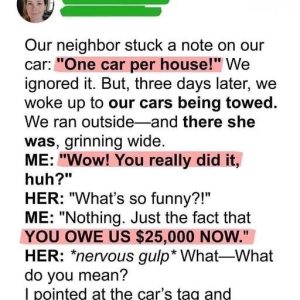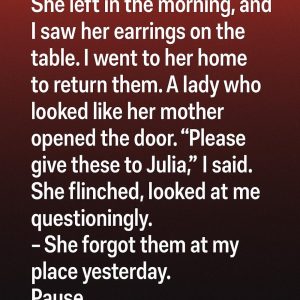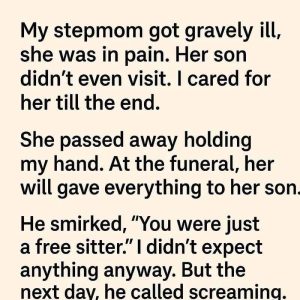When the gavel fell, James leaned back like a conquering king, flashing that grin—wide, white, and empty. On paper, he had everything: the house, the cars, the accounts, even the furniture we once picked out for “forever.” On paper, I’d lost. I zipped my bag, stood, and laughed—softly. He thought he’d won. He hadn’t realized he’d trapped himself. James had always worshiped image. Every raise became a purchase, every dinner a performance. He dressed me like a prop and measured love in luxury. The only thing he never saw was my mother.
When we couldn’t afford the down payment for the house he needed, she wrote the check—on one condition: a life estate in the deed, giving her the right to live there until she died. He agreed without reading the fine print. After the divorce, James returned to “his” house with champagne and guests. My mother sat in her chair, calm as a queen. When he told her to leave, she showed him the deed. “I’ll be here as long as I live, James. You agreed to that.” He had. He just hadn’t cared enough to remember.
I moved into a small apartment that felt enormous. My consulting work flourished without his spending weighing it down. Gossip traveled—how he couldn’t sell the house, how buyers balked at the clause, how his parties shrank as quickly as his pride. On weekends, I visit my mother’s garden. “Do you regret tying yourself to that house?” I once asked. She smiled. “I didn’t give him anything. I gave you security.” Now my life is smaller in space but vast in peace. James still lives in the house he can’t sell or enjoy. People ask if I regret giving him everything. I didn’t. I let him keep nothing of value.





